Lifestyle, Nutrition, Weight Loss
10 Ways to Get Rid of Water Retention
Water retention in the body is the swelling caused by the accumulation of large amounts of fluid in the spaces between the body’s cells or in the circulatory system.
Oedema or water retention is a symptom, not a disease or disorder. It can be an indication of a problem in your kidneys, heart or the circulatory system.
Table of Contents
- 10 Simple steps to lose for water weight
- What are the Causes of Water Retention?
- 14 Factors may cause water retention
- Water Retention in Women
Water retention these days is more because of our lifestyles and unhealthy eating habits. In certain cases, tests and medical help may be required.
Most common causes being excessive salt and alcohol intake, hormonal imbalances, or bad lifestyle habits.
The water retention usually clears up when this underlying condition is diagnosed and treated.
While oedema can occur anywhere in the body, it is most common in the feet and ankles. This is labelled as peripheral oedema.
10 Simple steps to lose water weight
1] Increase the intake of food rich in potassium
The fluid regulating action of the kidneys is based on the dual pumping action of sodium and potassium – sodium draws water into the body while potassium helps to excrete it.
Potassium is an important mineral which is needed for proper functioning of body cells, tissues and organs and helps wipe out fluid retention.

It also helps stimulate the kidneys so that they may flush out waste along with excessive salt out of the body.
Potassium deficiency may lead to water retention causing oedema, swelling, and weight gain. So have foods rich in potassium too. Most of the fruits and vegetables are rich in potassium.
Some good options are bananas and raisins. Bananas contain high amounts of potassium, which helps eliminate fluid retention.
If you are not a banana freak, try raisins as a substitute as they can also serve the same purpose. Raisins or munakka have great weight loss benefit too!
You can also include following potassium-rich fruits and other foods for water retention: Tender coconut water, apricot, berries, Apples, Oranges, lemon, Spinach, Fresh Mushrooms, Bell Peppers, Melons
2] Water
Water flushes out the system better than anything else and can reduce premenstrual bloating.
Drink 8 to 10 glasses a day; more when you exercise. (NOTE: This advice is only for hormonal related bloating.
If water retention is caused by any other medical condition, be sure to check with a physician before drinking extra water — it may not be good for you.)
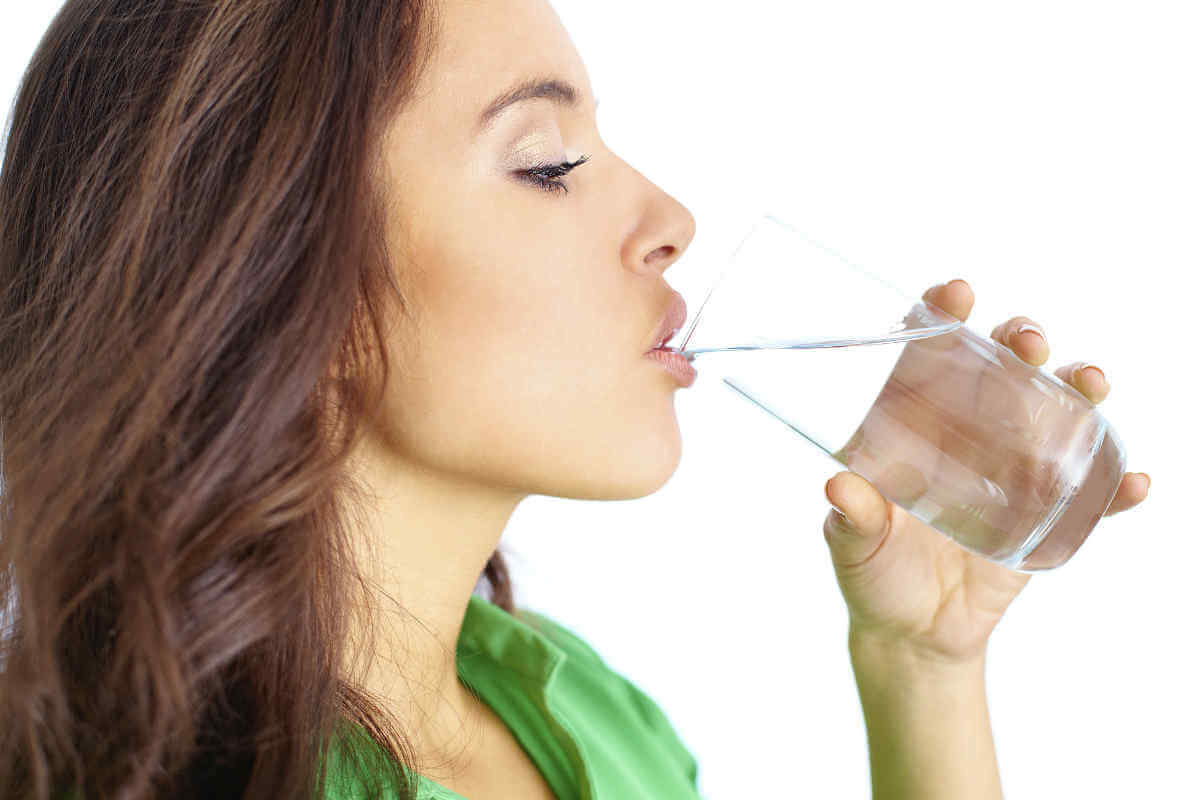
Drink water whenever you feel thirsty. Don’t postpone this for other time. Always keep water in your reach and carry a water bottle with you wherever you go.
Drink at least 8 glasses of filtered water every day whether you are thirsty or not. Sometimes, we do not recognise the thirst signal and mistake it for hunger.
Not just as a remedy for water retention, there is other goodness associated with drinking water.
Watch your urine. If it is yellow and thick or you do not urinate much during the day, your body is in need of water. Your urine should be clear.
If you feel weakness, dizziness, cramping, headaches and dry mouth without any explainable reason, it might be dehydration. Drink water.
3] Diuretics
If a client is on certain diuretics, they have to be instructed to eat more of certain nutrients like potassium.
Eat natural diuretic vegetables, such as grapes, green beans, leafy greens, pineapple, pumpkin, onion, watermelon, cucumber, lemons, tomatoes, and garlic.
Some of these foods may interact with diuretic medications so check with your doctor or nutritionist.
Natural diuretics or foods help your body release more urine. When you urinate frequently, your body not only releases extra water but also flushes off the toxins.
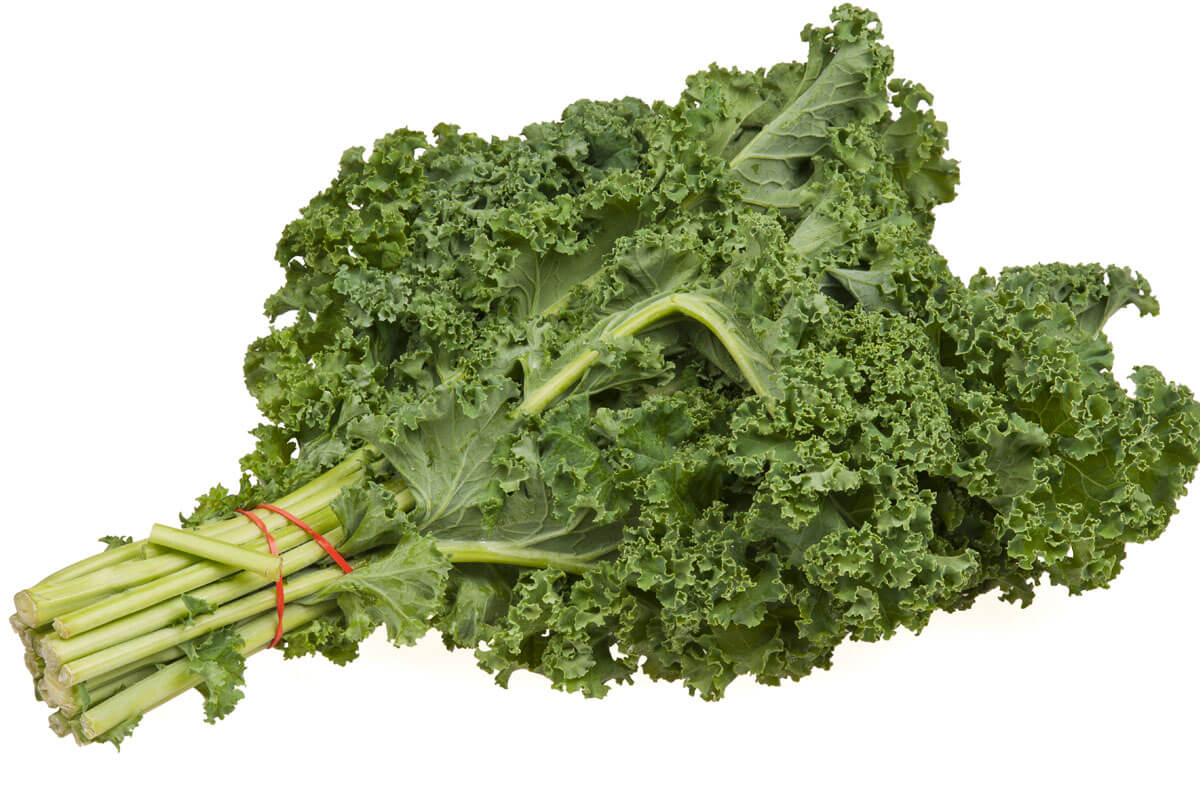
This helps lower your blood pressure by resuming water-sodium balance. You can always have one or the other diuretic foods on daily basis.
However, if you are already on diuretic or anti-diuretic medication, consult your doctor before including diuretic food in your diet.
4] Eat antioxidant foods
Such as berries, cherries, tomatoes, gourds, and bell peppers.
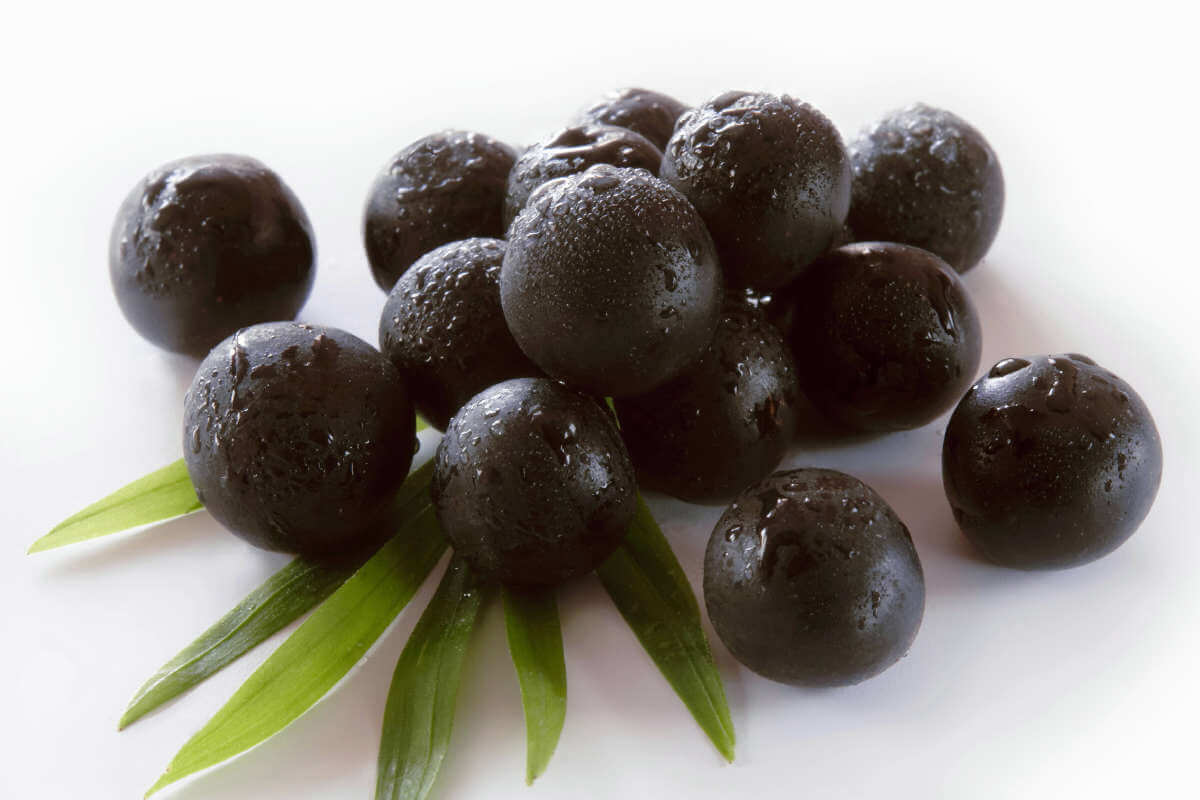
Avoid refined foods, such as white bread, pasta, and sugar.
Here is something more on the benefits of antioxidants.
5] Eliminate suspected food allergens
Such as dairy (milk, cheese, and ice cream), wheat (gluten), soy, corn, preservatives, and chemical food additives.
Your healthcare provider may want to test you for food allergies.
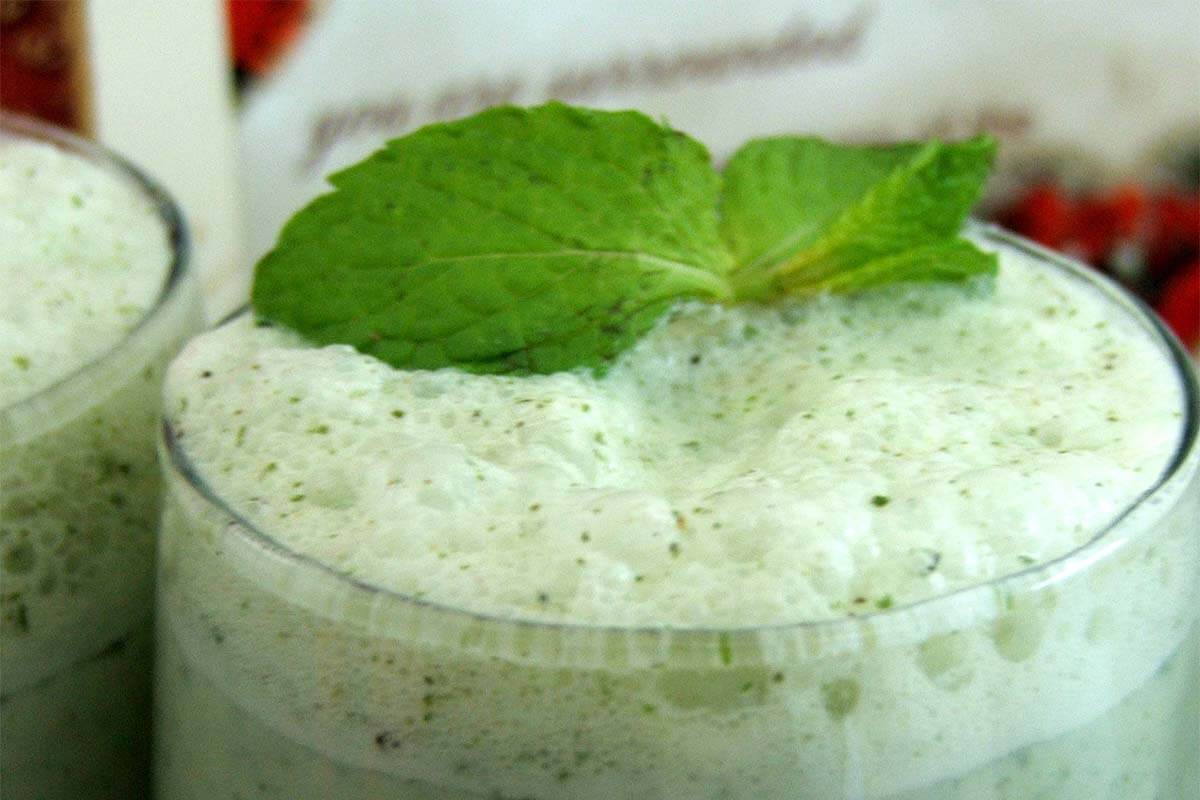
6] Nutrients
Eat foods high in B-vitamins and iron, such as whole grains (if no allergy), dark leafy greens such as spinach, amaranth, methi greens.
Eat fewer red meats and more lean meats, cold-water fish, tofu (soy, if no allergy), or beans for protein.
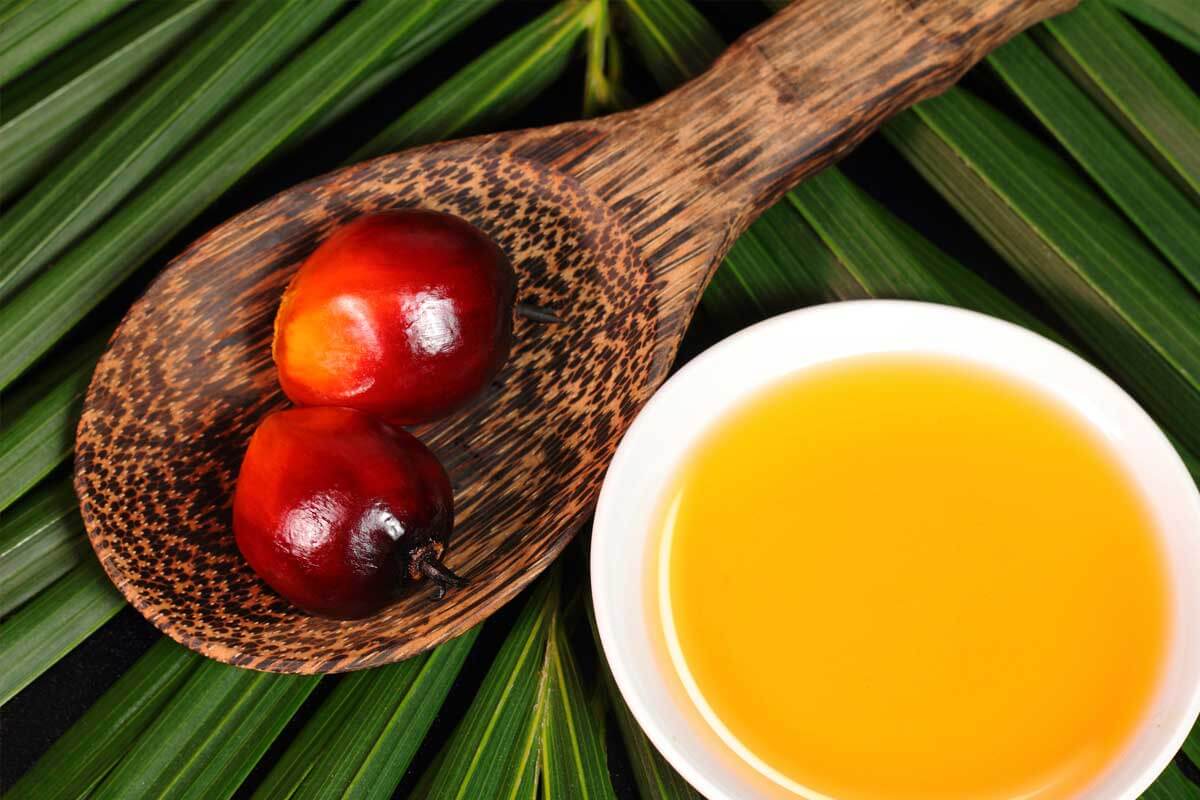
Use healthy cooking oils, such as olive oil. Reduce or eliminate trans fatty acids, found in commercially baked goods such as cookies, crackers, cakes, French fries, onion rings, doughnuts, processed foods, and margarine.
Avoid alcohol and too much caffeine. Drinking lots of alcohol or too many caffeinated drinks may lead to dehydration and cause fluid retention.
7] Multivitamins
You may address nutritional deficiencies with the following supplements:
A multivitamin daily, containing the antioxidant vitamins A, C, E, the B-complex vitamins, and trace minerals, such as magnesium, calcium, zinc, and selenium.
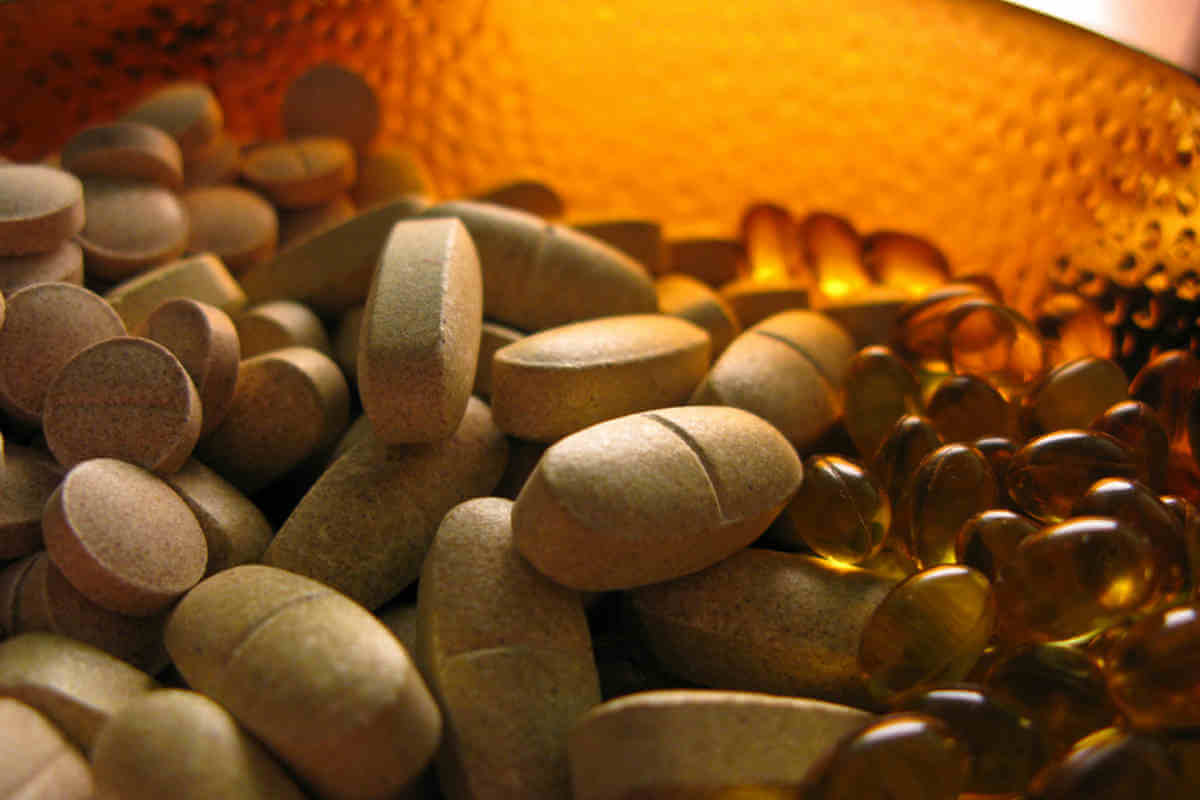
Both vitamins A and C help diminish the fragility of capillaries and decrease water retention. You can take 500 – 1,000 mg of Vitamin C daily as an antioxidant.
8] Protein to Eliminate Water Retention
Lack of protein in your blood can lead to water retention.
Protein aids in holding salt and water inside your blood vessels so that fluid does not leak out into your tissues.
When the blood protein, albumin, becomes too low, fluid retention happens and you suffer from oedema, particularly in your feet, ankles and lower legs.
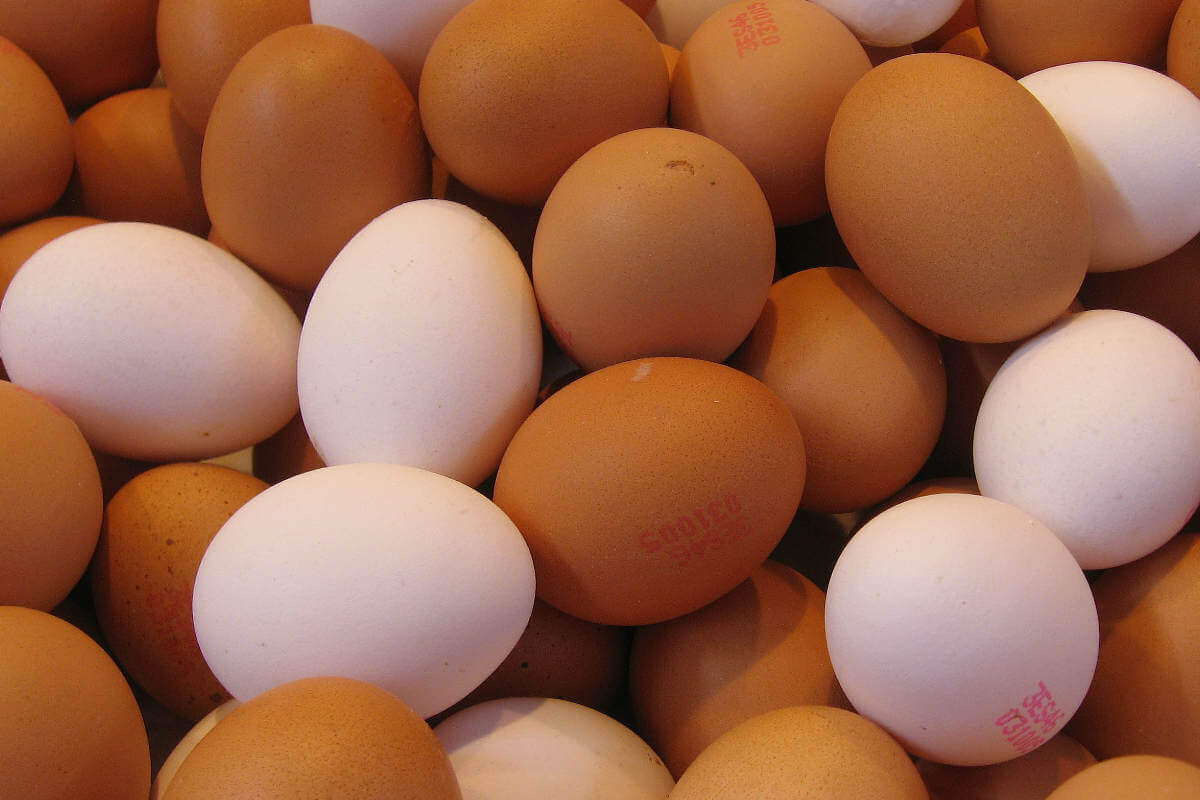
Most of the times, protein level goes down in the blood due to malnutrition, kidney and liver disease.
Curd and buttermilk give you a healthy boost of protein. It is also high in potassium. While all types of yoghurts are rich in protein.
Other foods high in protein include milk, paneer, legumes and dals, egg white, fish, tofu etc.
9] Exercise continuously
Exercise has been shown to reduce the water retention by flushing out the water and salt through sweating, higher respiration, and increased urine flow.
If you have been sitting for a long time, walk up and down or climb stairs every hour.
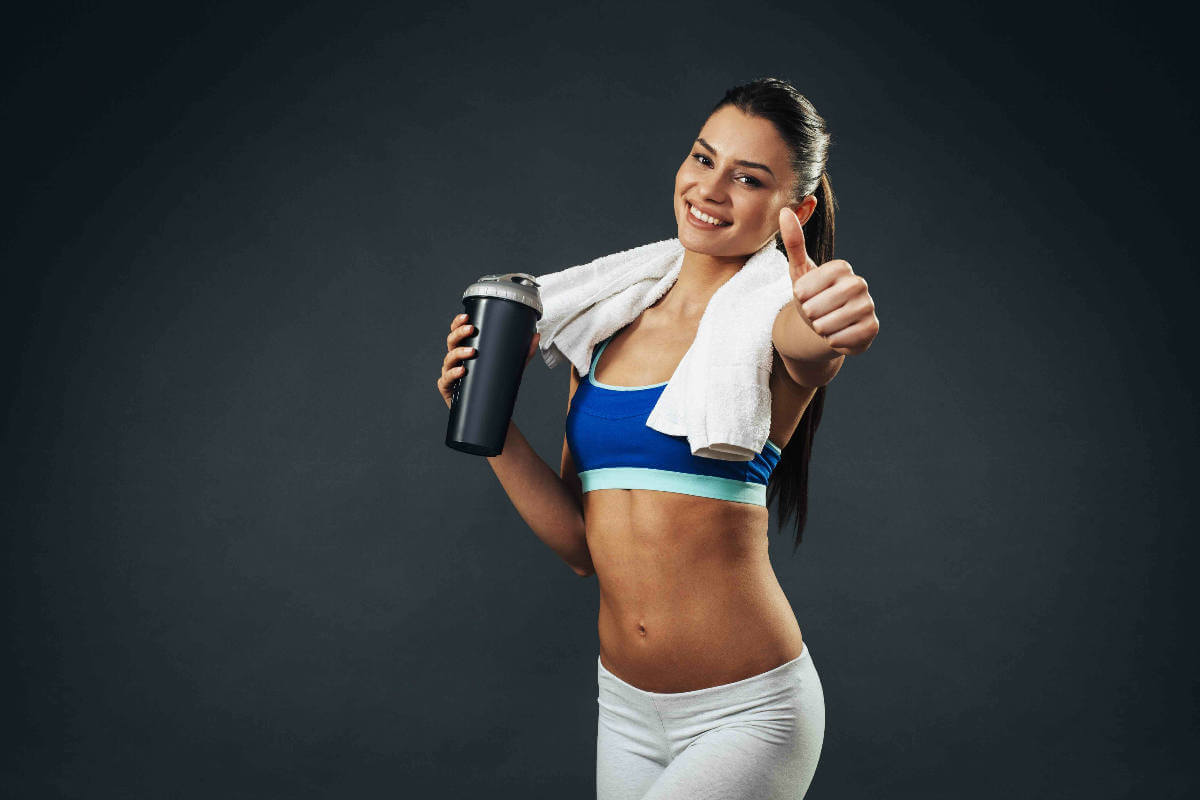
You can also try the following exercise: point the toes downward, then raise them up as high as possible which pumps up the calf and foot muscles.
You can also raise your hands up overhead. Exercising over time allows the reversal of water retention because of strengthening of the circulatory system and the repairing of damaged capillaries.
10] Limit your intake of salt/sodium
High salt intake leads to retention of sodium and thereby water in your body. This expands extracellular volume i] the body.
When you eat salt, your body tries to dilute it by holding water around your cells and in this process, supplies more water to your bloodstream.
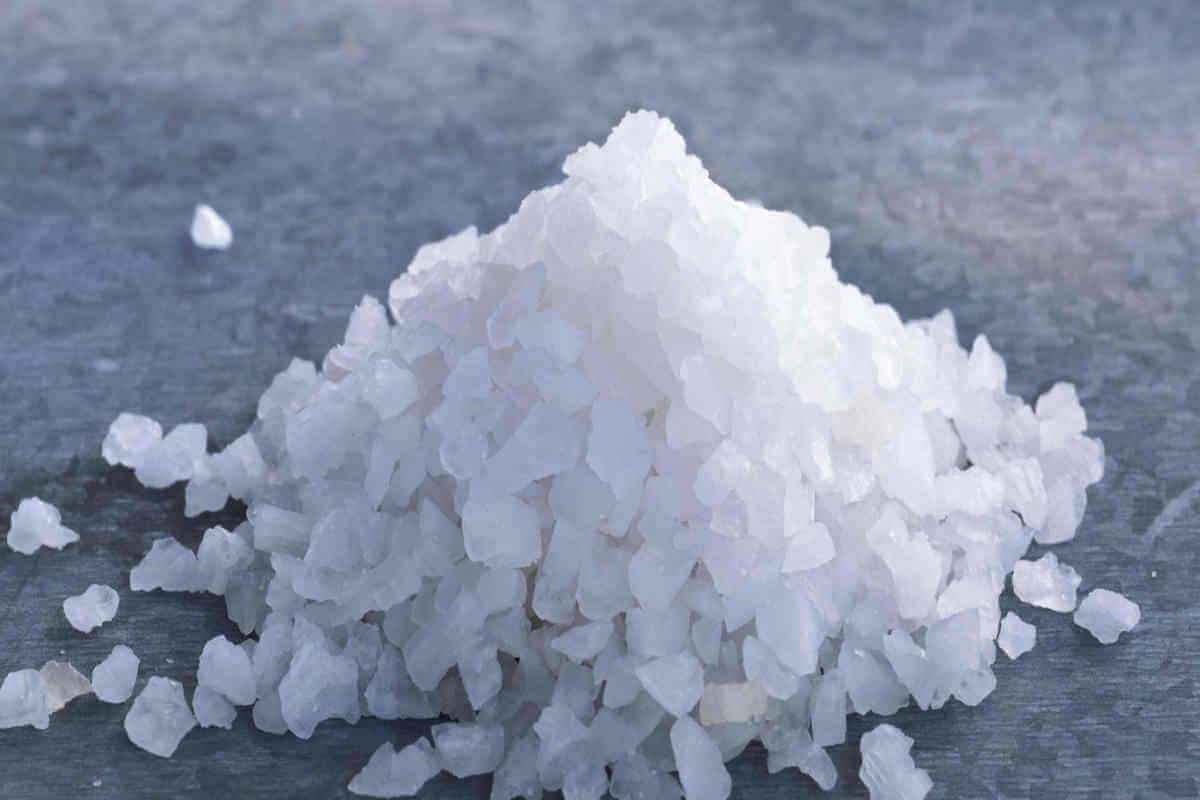
This not only increases water weight in your body but also leads to other complications.
The heart has to deal with the extra fluid in the blood vessels. It may do so by increasing the blood pressure, thus increasing the risk of developing heart disease and stroke.
Also, when you eat more salt, your body flushes out more calcium through urine which may lead to osteoporosis and reduced bone density.
So, it is wise to lower the intake of salt not only to cure water retention but also to keep other health complications at bay.
8 Tips to reduce salt intake for the elimination of water retention
- Cook food at home most of the time. Hotels and restaurant foods are loaded with sodium.
- Use a lesser amount of salt while cooking food at home.
- Remove the salt shaker from your dining table. Don’t add salt while eating food. Instead, you may use other herbs and spices for flavour.
- Stay away from canned foods including canned veggies, soups, sauces etc. as they use more salt as preservatives.
- Avoid having processed foods like potato chips, salted peanuts as well as junk foods. Avoid eating too many high-salt foods such as soy sauce, stock cubes, salted meats and fish, gravy powders, foods canned in brine, and salted snacks such as nuts or popcorn.
- Women should especially reduce taking salt prior to their menstrual cycle every month. Hormonal change during this period leads to greater water retention.
- In a normal situation, the recommended level of salt in the diet is a maximum of 2,300 mg (one teaspoon) of sodium per day. People with heart disease and high blood pressure should have less than 1,500 mg of sodium per day. However, when you need to eliminate water retention, you need to reduce your salt to even less than these recommended levels.
- Check food labels to look for lower salt choices. Although food manufacturers have done a lot in recent years to reduce the salt content of many processed foods, there can still be a difference between types and brands.
The Possible Suggestion
Sugar too indirectly helps in water retention. It increases general insulin level in your body, which in turn decreases your body’s ability to flush off sodium or salt. Therefore, sugar intake should also be reduced along with salt consumption.
What are the Causes of Water Retention?
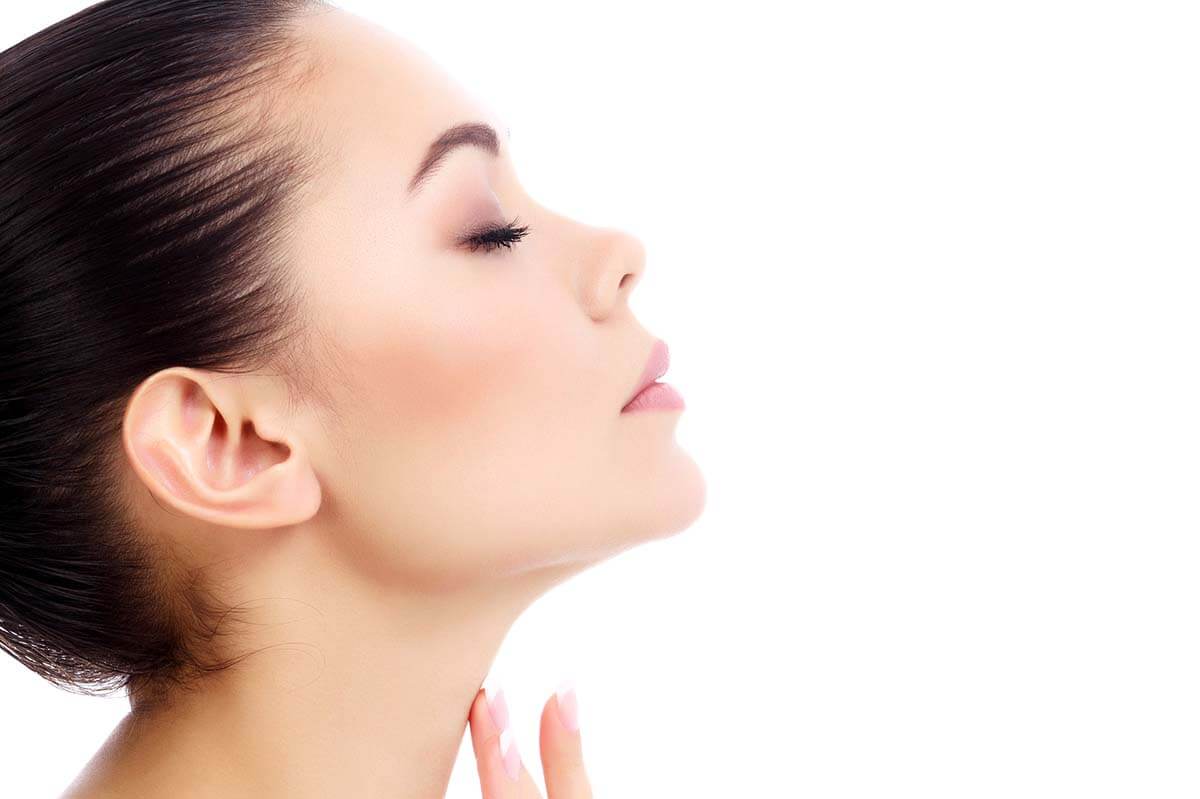
Some of the following 14 Factors may cause water retention
- Sitting or standing for long periods. Immobility triggers water retention.
- Certain medications like oral contraceptives that include oestrogen, can trigger fluid retention. Even the pregnancy hormones can cause water retention.
- Other medication, such as corticosteroids or medicine for high blood pressure can cause problems too.
- Hormonal changes during menstruation, pregnancy, or menopause are some causes too.
- Infection or injury to a blood vessel, blood clots, or varicose veins.
- Blocked lymph channels (lymphedema).
- Allergies to food or insect bites.
- Kidney, heart, thyroid, or liver disorders show up as water retention.
- Arthritis, as joints affected in certain cases, tends to swell with fluid.
- High or low blood pressure. Eating salty foods are also a major reason.
- A brain tumour or head injury.
- Exposure to high altitudes or heat.
Water Retention in Women
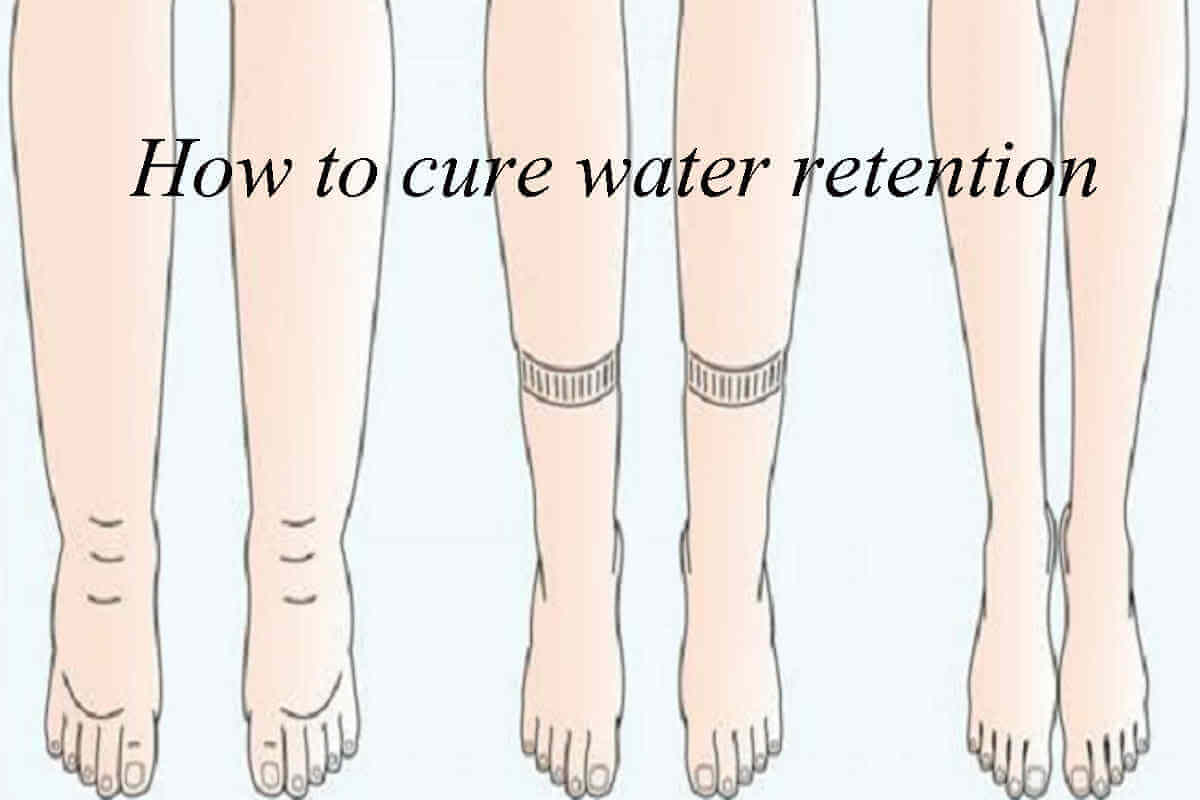
Water retention and bloating in females is the cause of many health-related problems, including high blood pressure, PMS, hormonal imbalances.
“Water retention makes it very difficult to lose weight when on a diet or fitness routine!”
Women will see symptoms of water retention at about the time of the menstrual cycle. There would also be a sudden increase in weight.
This happens due to imbalances in oestrogen levels which turn on the production of a hormone called “aldosterone”.
Aldosterone then causes the kidneys to retain fluids throughout the body and we see a sudden gain in water weight.
The simple way to get rid of excess water is cut back on the foods and ingredients that hasten and increase water retention within our bodies.
FREE CONSULTATION with a Possible Nutritionist
Putting your feet up at regular intervals throughout the day and regularly rotating your ankles can help remove fluid build-up in the legs.
Lie down with feet up: Recline with feet up in the raised position. This will allow the fluid collected in the legs to go to the circulatory systems and from there to the kidneys for excretion.
So there you go, some simple remedies for water retention.

Submitted by,
Suhasini Mudraganam
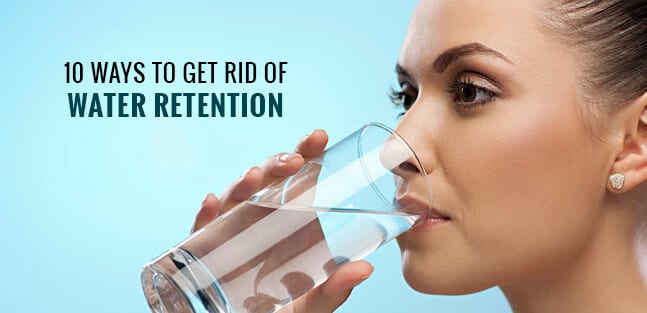
Very nice and usefull article….madam
Thank you!! Please do read our other interesting articles.
its great and wonderful such goods advice in water retention
Hi,
Thanks for writing to us. 🙂 Keep following our blog for more such articles.
Good afternoon. Thanks for this info! Excellent article.
Thank you for writing to us. Keep following our blogs for more articles.
Hi Suhasini,
Great article which helped me lots. Was not easy to find this blog, But I’m glad that I’ve come across your article.
I have a question and I was hoping you could me give me your expert opinion.
I’m a bit worried from time to time. I got a lot of excess water in my body. I’m into bodybuilding and I like to lose those few extra kilos of excess water in my body to reach my end goal.
Also, their’s a lot of bloating going on in my stomach. So something is not right.
I’ve been to the doctor already and he says it’s my diet. It can be since I’m eating different like most regular people.
Keep up the good work and hear from you soon!
Patrick
Hi patrick! We are glad that you liked our article, which explains how to get rid of water retention. We thank you for sharing your valuable feedback on the same. We would like to inform you inform you that we help in losing way naturally bu having super-foods provided by us.
kindly follow the provided link or call on toll free number 18001021255 to speak to the concerned team. https://truweight.in/blog/food-and-nutrition/indian-diet-plan-weight-loss-4-weeks.html